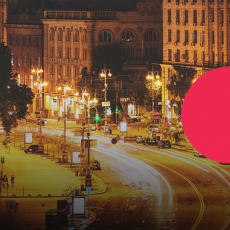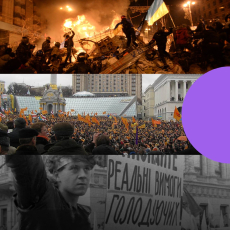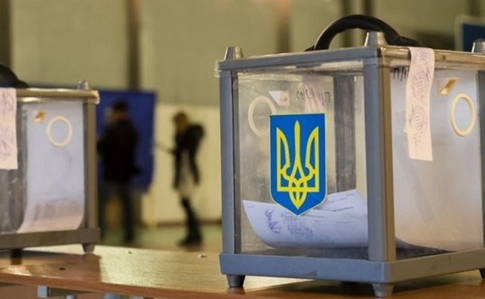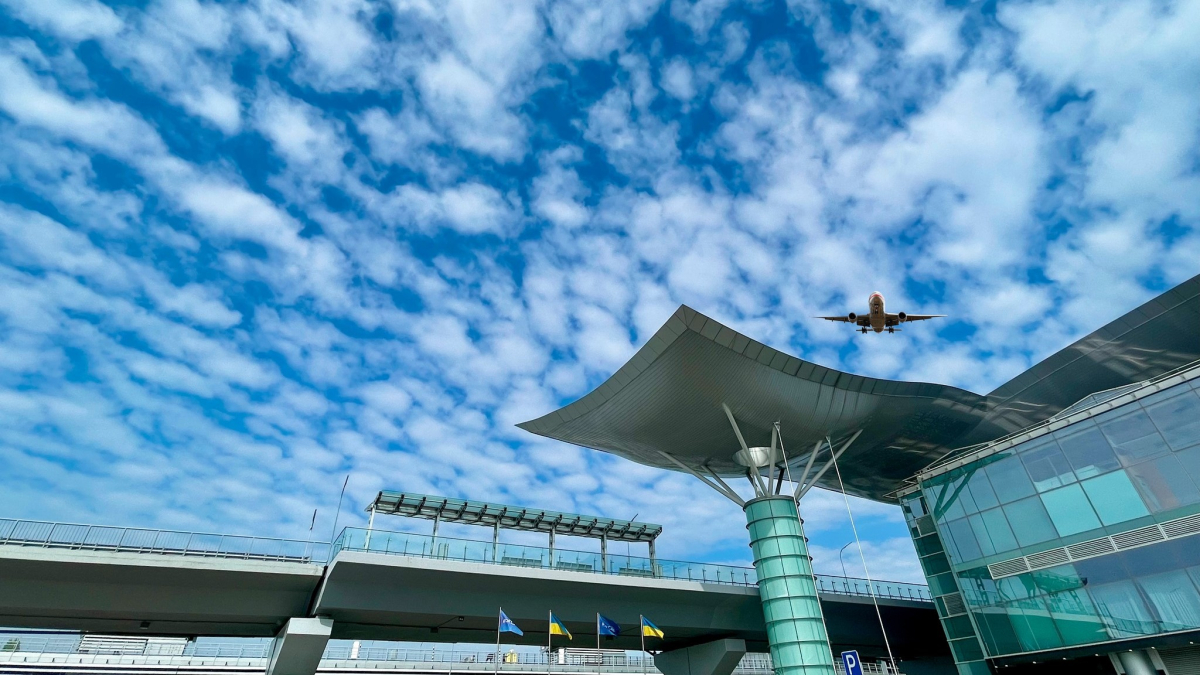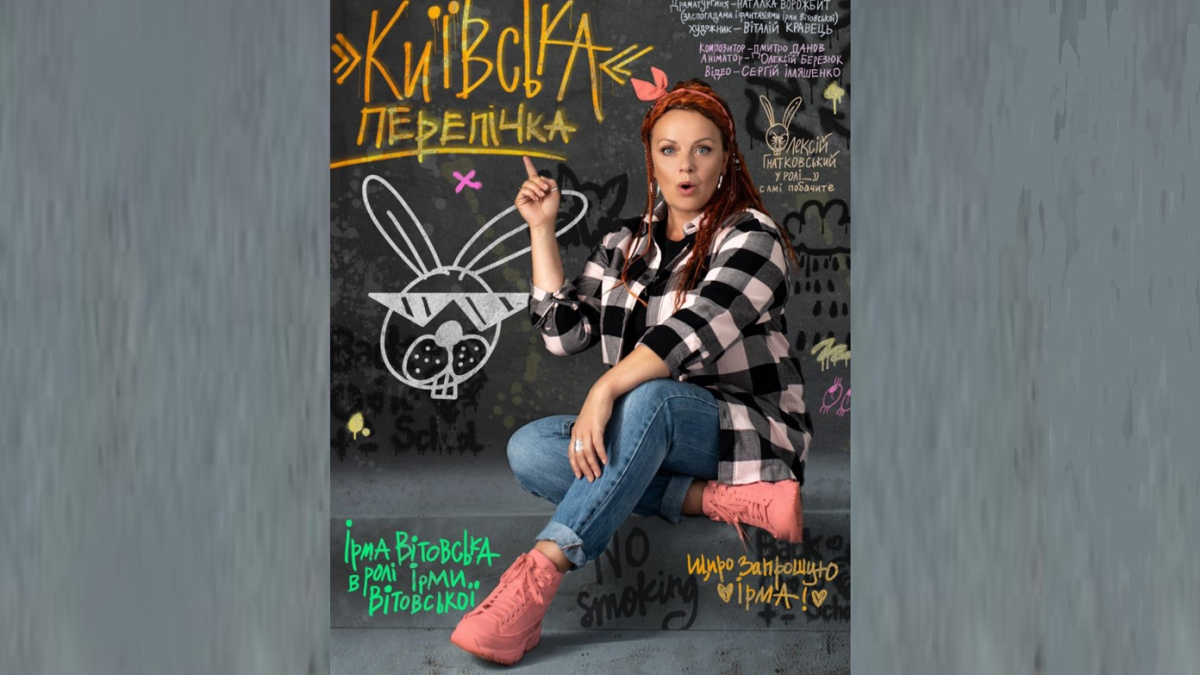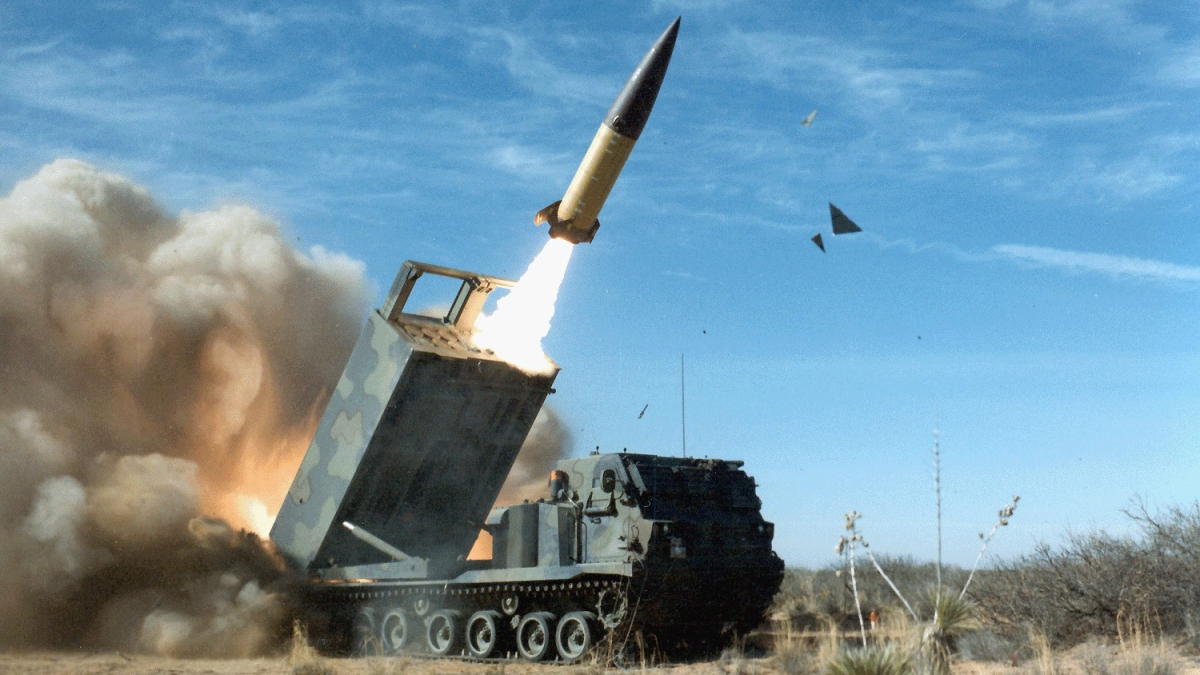The Central Election Commission has registered 44 candidates to vie for presidency in the March 31 poll, out of 94 applicants. This is a record number in Ukraine’s entire history, beating the previous one in 2004, when 26 candidates ran for president.
From now on and until silence the day before Election Day, candidates are officially allowed to advertise their agendas and programs through mass media, outdoor banners and light boxes, hired electioneers, etc. Unlike in the previous presidential race in 2014, this time there is no clear favorite.
Here are seven most conspicuous candidates:
Petro Poroshenko, 54, the incumbent president, is running for the second term. He has a solid political background: he was elected to parliament four times and served as Foreign Minister and Economy Minister, and was a member of the National Bank Board.
Poroshenko's main election slogan is "Army, Language, Faith", meaning his political agenda is topped by the country’s security and the Ukrainian language and Church as nation-consolidating factors.
His electioneering tactic relies on his maxim “It is unwise to replace the general during a battle” as well as on putting himself across as Ukraine’s first and only president who has managed to revive the Ukrainian army and make it one of the best in Europe, and to secure the recognition of the Ukrainian Orthodox Church by the Mother Church of Constantinople.
Poroshenko’s success record also counts the political association, free trade, and visa-free travel with the EU, a new loan program with the IMF, stabilization of Ukraine’s banking system, and consolidation of international support for Ukraine in resisting Russian aggression.
Poroshenko has been criticized for slow progress in implementing the judicial, healthcare, education and other reforms and the absence of tangible success in fighting corruption.
Presenting his election program, Poroshenko vowed to settle the Donbas conflict through political and diplomatic means relying on international support, to complete the reforms, to improve the quality of life in the country, and to apply for EU and NATO membership in 2024.
Yulia Tymoshenko, 58, twice-ex-prime minister, leads the Batkivshchyna (Fatherland) political party which is in opposition to President Poroshenko’s political force. For Tymoshenko, winning the presidency would be the crowning moment of her political career. After a narrow defeat in the 2010 presidential election against Viktor Yanukovych and then a crushing defeat in 2014 against Poroshenko, this time, she has fair chances to become Ukraine's first female president.
Tymoshenko has vocally supported Ukraine’s course for European and Euro-Atlantic integration, vowed to do away with corruption, and condemned the Russian-fueled conflict in the Donbas, which she promises to resolve politically and diplomatically, but not “at the expense of ceding a single square inch of Ukrainian land.” She rejects the idea of a “special status” for the parts of the Donetsk and Luhansk regions currently held by separatists, along with amnesty for them.
An important point of Tymoshenko’s strategy is “Russia’s legal responsibility for its aggression in Ukraine” through financial compensation. She hashttps://www.radiosvoboda.org/a/29573487.htmlcalled for Ukraine to bring more lawsuits against the Russian Federation to international courts.
Tymoshenko has been widely criticized for signing the gas supply contract with Russia in 2009 on terms very unfavorable for Ukraine. Critics also accuse her of populism and warn against a more Russia-friendly policy, should she come to power. There is little evidence, however, to back this assumption.
In June 2018, Tymoshenko offered her strategic program called “New Course”, which is seen as her election platform envisioning fundamental changes to Ukraine’s economic, security, and social policies. She promises to restore Ukraine's "greatness" and the "happiness and dignity" of its citizens, and to halve the recent surge in the price of natural gas for households.
Another key point of her platform is a constitutional reform, which, if elected, she would carry out by referendum before the parliamentary elections this fall. Tymoshenko is striving for an absolute parliamentary democracy based on the German model, but political experts maintain that given the political composition of the current parliament, such a reform appears to be unfeasible.
Volodymyr Zelensky, 41, a comedian and showman with a distinctive raw tone and a total novice in politics, was nominated by his People’s Servant political party.
Its name comes from the title of a popular satirical TV series where he played Ukraine’s president who came from the grass roots and did his best to make the people’s life better by dismantling the corrupt government machine.
Zelensky’s laid-back election platform promises peace, a clampdown on corruption, and a more straightforward democracy with significantly more referendums. His economic program is vague, if not obscure, and his foreign policy is still to be determined as well.
Instead of presenting his own program, he asked his supporters to name five key challenges which he, if elected, should address first of all. His request has gained over one million views on his Facebook page. He basically relies on young and middle-class Russian-speaking supporters in the eastern and southern regions who are active on social media and want to see fresh faces in politics.
In late December, Zelensky said in a TV interview that “for the sake of people’s lives” he was ready to “negotiate even with the devil” and that “at the end of the day Ukraine would “need somehow to reach an agreement with the Russians as there is no military solution to the Donbas conflict.”
Some observers in Ukraine have speculated that Zelensky's run might be backed by a well-known Ukrainian oligarch with the clear purpose of preventing Poroshenko's re-election. Zelensky denies such speculations claiming that he uses his own funds. He also denies allegations of him running a business in Russia and pledges “allegiance” to justice and democracy.
Yuriy Boyko, 61, self-nominated, former vice-premier and member of parliament, leads the Opposition Platform - For Life party. In November, he was expelled from the Opposition Bloc, but his ratings continue to grow. Boyko was a high-profile figure in the Yanukovych government where he was in charge of the energy policy.
He was accused of misappropriating millions of dollars from shady energy deals with Russian and Western companies and remains widely associated with the Yanukovych regime. His voter base is limited to the Russian-speaking eastern and southern regions.
Boyko has presented himself as a peacemaker promising to “end bloodshed in the country.” He has openly stated his intention to “normalize Ukraine’s relationship with Russia through implementing a comprehensive peaceful strategy in the Donbas” and all “political” provisions of the Minsk agreement, including further reintegration of the separatist-controlled parts of the Donbas. He rejects the IMF demand to raise gas prices for households and intends to cut spending on defense and increase social welfare payments instead. He advocates for the government to stay out of church affairs and for restoring economic relations with Russia.
Oleh Liashko, 46, MP, leader of the Radical Party, previously ran for president in the 2014 election and came in third after Petro Poroshenko and YuliaTymoshenko, with slightly more than 8% of votes.
In his election program Liashko undertakes to bring the Donbas war to a victorious end, create a society of equal opportunities and common welfare and root out corruption. His political agenda includes total lustration, elections with open candidate lists, and decentralization of governance. His economic agenda includes revival of national production, job creation, “fair taxes on oligarchs”, and revival of rural areas through government subsidies and transparent land registers.
Liashko pledges to reduce tariffs for utilities as well as to drastically raise pensions and welfare allowances payable to the poor and increase the healthcare budget tenfold. Liashko’s election program has been widely criticized as “populist” and “impracticable”.
Anatoliy Hrytsenko, 62, a retired army colonel and former defense minister, politician, independent MP, leader of the Civic Position party, ran for president in 2010 and 2014. He pledges to stop the Donbas war, reclaim Crimea, fight corruption, dismantle Ukraine’s oligarchy, sign legislation that would enable the parliament to impeach the president, cut the number of army generals, and bring the army up to NATO standards.
Hrytsenko has stressed the necessity of retaking control over the Ukraine-Russia border across which the Kremlin sends its troops, weapons, equipment, and other supplies to the Donbas separatists. That achieved, the Ukrainian government should disarm all separatists. Hrytsenko’s Donbas peace plan, which envisions a transition period of three to five years, closely resembles those offered by international experts. His team includes a number of internationally well-connected politicians who could help him deepen Ukraine’s relations with the West.
Andriy Sadoviy, 50, Mayor of Lviv since 2006, is the founder and leader of the political party Samopomich (Self-Reliance) represented in parliament. His election program is based on the "Christian morality and common sense" ideology.
Sadoviy promotes the ideas of liberal conservatism and is known as a successful politician on a local scale: during his office, Lviv has become Ukraine’s touristic capital and investment attraction and has been recognized as the most comfortable Ukrainian city to live in.
His strategy for Ukraine, as he describes it, is “improving the living standards and curbing corruption to massively boost government revenues”. That, according to him, is the only way to reclaim the territories currently occupied by Russia.
Political observers note that most of the presidential candidates employ populist rhetoric to raise their ratings and are cautious when it comes to sensitive issues regarding war, peace, and foreign policy. That being said, Ukrainian voters care very much about ending the Donbas war and living standards and these are the key themes to watch as the campaign evolves.
